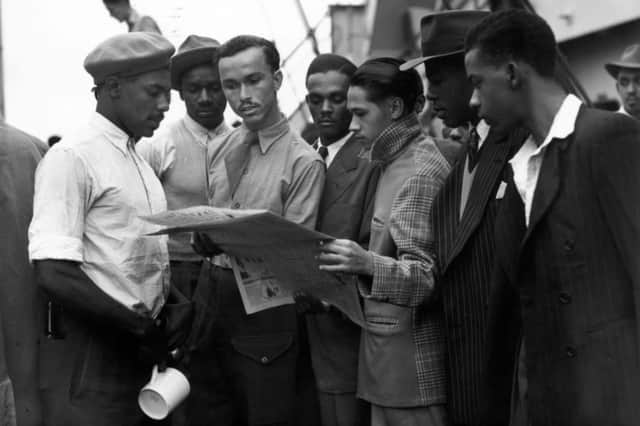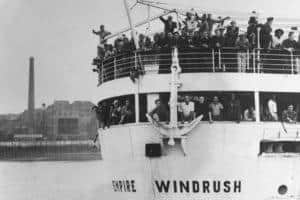This is when Windrush Day 2020 falls - and why we celebrate it


Today – Monday 22 June – marks ‘Windrush Day’.
But what is it, and how is it celebrated?
Here’s everything you need to know:
What is Windrush Day?
Windrush Day began two years ago, and its aim is to celebrate, commemorate and educate communities on the leading role the Caribbean migrants from the 1940s and their descendants have played in making Britain stronger, culturally richer and more inclusive.
The celebration commemorates the arrival of the Empire Windrush at the Port of Tilbury in east London on 21 June 1948.
Advertisement
Hide AdAdvertisement
Hide AdThe ship carried several hundred Caribbean migrants, many of them veterans of the Second World War, and its passengers disembarked a day later.
Since then, the Windrush has come to symbolise the first movement of mass migration to the United Kingdom in the post-war era.
What was the Windrush scandal?
One of the biggest current affairs stories of 2018, the Windrush scandal saw scores of people wrongly detained, denied legal rights, threatened with deportation, and wrongly deported by the UK Home Office.
The name comes from the fact that the scandal mainly involved people of Caribbean heritage known as the ‘Windrush generation’, in turn named after the Empire Windrush, the ship that brought the first groups of West Indian migrants to the UK in the late 1940s.
Advertisement
Hide AdAdvertisement
Hide AdMany had been born as ‘British citizens’ (the Caribbean countries from which many originated were under the Commonwealth banner), and were granted the right to settle in the UK by the British Nationality Act 1948.
Those legal rights meant that those migrated neither needed, nor were given, documents upon entry to the UK.


But when the Conservative government introduced their ‘hostile environment’ policies in the early 2010s (designed to make settling in the UK as difficult as possible for illegal immigrants), many of the Windrush generation – technically undocumented – fell foul of new immigration policies.
This led to hundreds of people – who had lived in Britain their whole lives, contributing to society in a plethora of ways – being wrongly deported, detained and denied legal rights by the Home Office.
Advertisement
Hide AdAdvertisement
Hide AdUnderstandably, it was an unsettling time for many, with countless ‘legal’ citizens suddenly being told they were to be deported back to their home countries after decades in the United Kingdom.
There are now 500,000 people resident in the UK who were born in a Commonwealth country and arrived before 1971 - including the Windrush arrivals - according to estimates by Oxford University’s Migration Observatory.
How is Windrush Day celebrated?
Many places will be beginning their days of celebration with the ‘Windrush song’ – ‘London is the Place for Me’ by Lord Kitchener – at 10.27am – in reference to 1,027 passengers aboard the Windrush when it docked at Tilbury.
Due to Covid-19 restrictions, the usual gatherings won’t be allowed, so instead many local authorities are curating digital exhibitions of documentaries, songs, poems, and speeches from residents.
Advertisement
Hide AdAdvertisement
Hide AdMorcea Walker MBE – who is helping to organise celebrations in Nottingham – said: “I am so pleased that in spite of Covid-19, efforts are still being made to recognise the contribution of almost half a million people who moved from the Caribbean to Britain between 1948 and 1970.
“I am a proud daughter of the Windrush, and I celebrate the contributions made by those pioneers who helped Britain in its growth and development not only at the time of Windrush but throughout history to present day.”
Why is the NHS celebrating?
This year, the NHS in particular is leading the charge in Windrush celebration, marking the contribution of staff from more than 200 nationalities who have played a critical part in the shaping of the health service, and remain a crucial part of its workforce today.
The Empire Windrush arrived in the UK only a fortnight ahead of the founding of the NHS, and so the anniversaries this year are being used to drive practical changes in support for BAME staff and patients.
Advertisement
Hide AdAdvertisement
Hide AdSpeaking from Windrush Square in Brixton, Sir Simon Stevens, NHS chief executive, said: “Today not only marks an important moment for millions of families across the nation, but also for our health service.
“Many of those who came to this country shortly after the war, on ships such as the Windrush, helped nourish the NHS in its early years, and became an integral part of its success.”